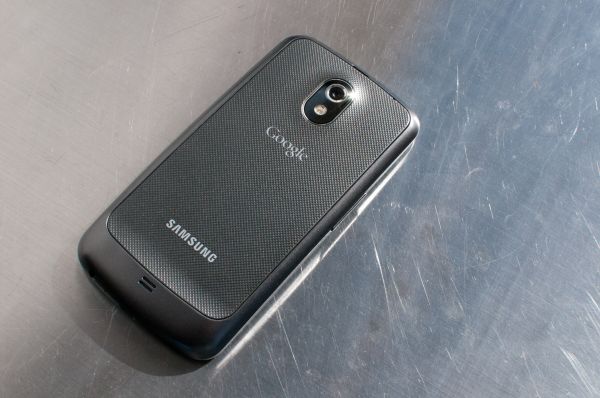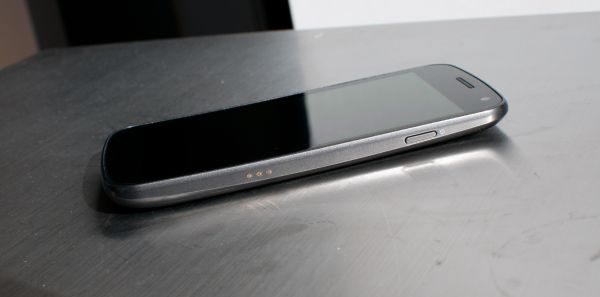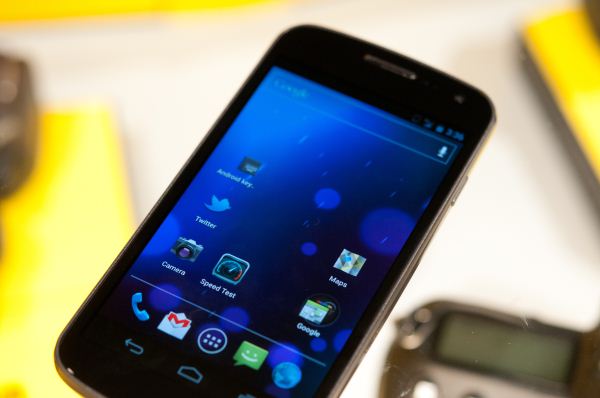Samsung Galaxy Nexus & Ice Cream Sandwich Review
by Brian Klug & Anand Lal Shimpi on January 18, 2012 1:34 PM ESTFor Google, one of the major points of Nexus has always been to provide a stable piece of reference hardware for it to cater a major OS release to. Each device has married a major revision of the Android platform to the latest stable hardware. That isn't to say that the hardware choices are always bleeding edge, but rather modern and logical next steps for the platform. I often read that Android as a platform is plagued by rapid hardware releases and product cycles that leave endless variants of the same hardware for each carrier, and that preloads and skins fragment the experience. While there's some truth to this, it isn't necessarily Google's fault - the software is open source after all. In the case of Android 4.0, this release is about consolidating the tablet and smartphone form factors under one version of Android and negating some talk of the platform's fragmentation.
For Google, each Nexus launch is analogous to Apple's iPhone launch - it's the one time that Google gets to dictate exactly what hardware is coming out, and exactly what software makes it onto that hardware. It is no less significant for Google's platform, either. Thus far there's been one Nexus device released per year, and that hardware gets updates from Google directly - at least until the hardware precludes support.
While the Verizon CDMA/LTE Galaxy Nexus is a bit unique, there's no indication thus far about how long carrier approval will take. The Galaxy Nexus line itself is very interesting - on one side, we have the GSM/UMTS device with pentaband WCDMA support that finally fully detaches the hardware from needing carrier specific versions for each region or carrier on GSM/UMTS networks. This is a dramatic step toward reducing carrier power, turning the networks into dumb pipes, and changing the way US customers shop for devices - exactly what the point was when Google launched the Nexus One. On the other, we have the Verizon CDMA/LTE version which thus far marks the furthest carrier incursion into otherwise untouched Nexus-land.
At this point, the Galaxy Nexus is awesome because of its marriage of Android 4.0 and a number of unique hardware features. I'd go so far to say that the Galaxy Nexus is without question the current best Android device, and with the improvements made in Android 4.0, first party applications and browser are now nearly as smooth as their counterparts in iOS. If OS smoothness was the thing holding you back from Android, 4.0 does a lot to change that. The Galaxy Nexus display is excellent, pentaband WCDMA on the GSM/UMTS model is exclusive only to that device, battery life isn't half bad, instant capture works well, and it has Samsung's newest LTE modem. The downsides are pretty much obvious - the camera is far from awesome, the GSM/UMTS variant has a quiet speakerphone, Samsung is using OMAP4460 at 80% of its maximum clocks, and some Galaxy Nexus displays have more more inhomogeneities than others. There's also the matter of newer 32 and 28nm SoCs that are just over the horizon.
The Galaxy Nexus is so important again because it's the only time Google gets to dictate everything - the hardware, the software, and update timing. There's also the element of freedom, with unlockable hardware out of the box. I find myself wishing that Google had begun its adventure sticking it to the carriers with pentaband WCDMA support like this phone finally has, as that would've been much more successful than the practice of releasing a few different Nexus variants with different bands.
As far as Ice Cream Sandwich is concerned, it really is Android perfected. Everything is smoother, faster and nearly all of our issues with the OS have been addressed. ICS brings Android into 2012 and gives Google a great platform to begin to introduce new features going forward. Android is now very close to UI performance parity with iOS, which eliminates a major tradeoff you had to make in the past. If you were hoping for ICS to be iOS with a Google logo on it, you'll be sorely disappointed. However if you're a fan of Android and just wished it were smoother and more polished, Ice Cream Sandwich is what you've been waiting for.













185 Comments
View All Comments
gamoniac - Wednesday, January 18, 2012 - link
The article is co-authored, yet I keep seeing the use of "I" as the pronoun in sentences throughout. As a daily AT reader, I find it a bit awkard when trying to put a face to the article. I like the writing style; it just bugs me when I can't figure out whether it is Anand or Brian who is making the statement that I am reading. Perhaps the use of "we" makes more sense?Thanks. Great work as usual.
Omid.M - Wednesday, January 18, 2012 - link
As an editor, I agree with this comment.It's not a huge deal, but it's nice to see:
AL: I think that...
BK: I disagree with Anand, but...
Just don't do it everywhere because it'll seem like an interview.
Anand,
The videos have been the best new thing AT has done in a long time. Thanks! Good to put faces to names, even better to add voices. Next, comment system ;)
@moids
-Omid
bjacobson - Wednesday, January 18, 2012 - link
Perhaps writers at Anand should be required to speak in terms of The Collective.Brian Klug - Thursday, January 19, 2012 - link
This is definitely something we've struggled with in the past and admittedly continue to struggle with. Most of ICS is Anand (though we collaborated and always wind up agreeing about most things), then the hardware and onwards is myself.Think of us as a hivemind (or collective) and the problem goes away :P
-Brian
Zoomer - Thursday, January 19, 2012 - link
Or write in 3rd person like a technical paper. Though that can be boring to read.just4U - Friday, January 20, 2012 - link
"Think of us as a hivemind (or collective) and the problem goes away :P-Brian"
------
It does NOT!! Ok, which bonehead asimilated Brian & Anand? There goes the neighborhood (...grin)
thebitdnd - Wednesday, January 18, 2012 - link
I've had my GNex since the day after launch. It surpasses any experience I've had with a smartphone (including HTC Incredible, iPhone 3GS, and a HTC EVO) as a web browser and mobile computer device, but the single complaint I have is with using it as a...(wait for it) PHONE.I've had over a dozen calls now where I'll be conversing away and all of the sudden my microphone cuts out and the other person can't hear a word I'm saying. The call is still connected and I can hear them just fine, but I have to hang up each time and call them back.
Google directed me to Verizon, Verizon says it's a Samsung/Google problem, but I've been assured it's a software problem and there will be a fix in 'an upcoming update'.
As much as I like the hardware and software, not making reliable calls is a real kick in the junk for a smartphone.
jalexoid - Wednesday, January 18, 2012 - link
Well, what did you want with CDMA or LTE? No bugs?mhaager2 - Wednesday, January 18, 2012 - link
Great review as always Anand. My only criticism is that it felt like it took you a very long time to get this review out compared to how quickly the iphone 4S review came out. I think your comments about the hardware are correct; its certainly not leaps and bounds ahead of other phones. Being my first phone since the iphone 3G I do wish it was more bleeding edge to future proof it a bit. However it actually works very well, both as a content consumption device, as well as (gasp) as a phone, and I just love, love, love that fact that its penta band. Now when I visit the US I no longer have to endure the legal extortion that used to be the norm with carrier locked devices. That feature alone makes this phone better than any other out there,, old GPU and all.Has anyone overclocked this to its 1.5 ghz spec? I wonder if there is any appreciable differerence and what the battery life trade off is.
tipoo - Wednesday, January 18, 2012 - link
I can only speak from my experience with my Nexus S, but the max CPU speed has little battery life impact compared to the impact the CPU governor does. 1.3GHz with the Lazy governor (available in Trinity Kernel) lasts longer than the stock 1GHz on OnDemand.